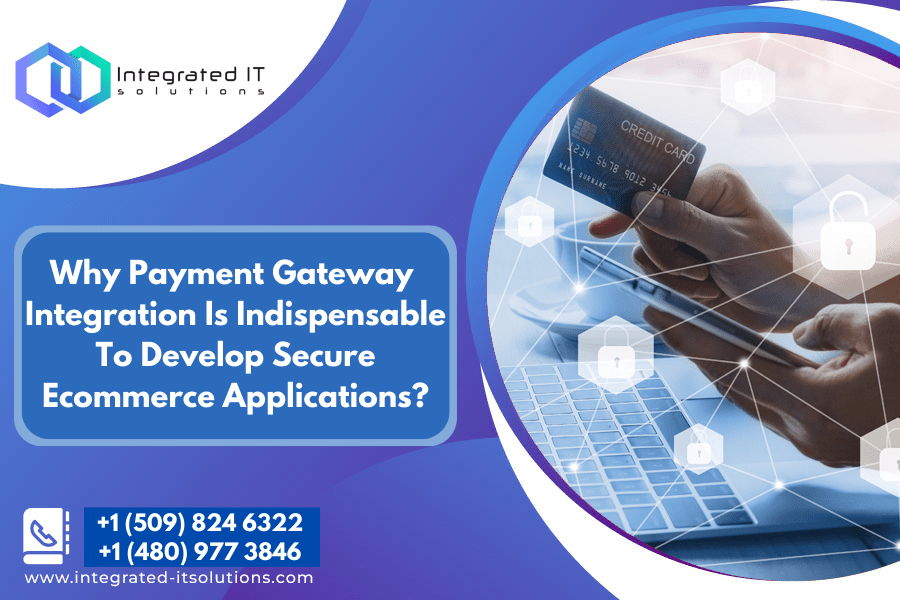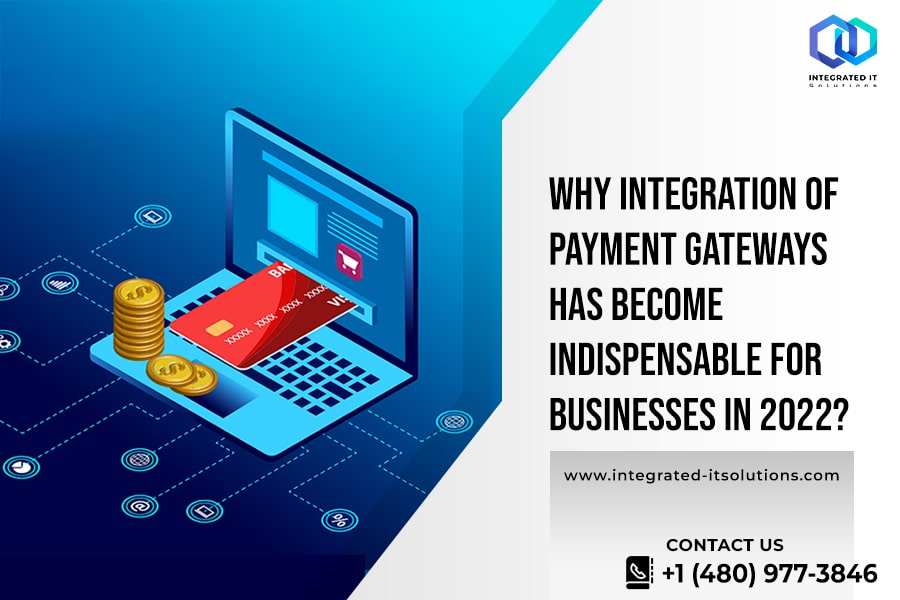You should provide your clients with a secure, quick, and simple payment method whether you run an e-commerce site or are just managing your online presence. The payment method you use must meet the needs of both your customers & your company. Therefore, it must be secure from fraud, accept a range of payment options, be user-friendly, and work with your platform.
A merchant uses a payment gateway integration to be able to process bank cards and accept electronic payments. The currencies you can accept, the transaction cost, the speed at which funds arrive in your merchant account, and the payment options you’ll provide are all influenced by the payment gateway you choose.
What is a payment gateway?
An online or physical store’s payment gateway is a service that authorizes and manages payments. A gateway acts as a doorway to streamline the flow of transactions between customers and retailers. Encryption and security procedures are used to transmit transaction data securely. Data is sent back and forth between websites, applications, mobile devices, payment processors, and banks.
Payment gateway integration
There are four main ways to incorporate a payment gateway integration in general. There are two main differences among them all:
How much user experience there is during the checkout and payment process, as well as whether you need to comply with any financial regulations (PCI DSS).
So let’s find out what your options are and which integrated payment systems work best for you.
When do you require PCI DSS compliance and what is it?
You can skip this part if all you need is a payment gateway and don’t intend to store or process credit card information because your gateway/payment service provider will take care of all the processing and compliance requirements.
However, you’ll need to adhere to specific industry laws if you’re going to work with sensitive financial data. Integrated payment processing card payments require the Payment Card Industry Data Security Standard (PCI DSS). The four largest card associations—Visa, MasterCard, American Express, & Discover—created this security standard in 2004.
You must fulfill the following stages to become PCI compliant:
Set your degree of compliance. The number of secure transactions your company has completed will determine which of four compliance tiers your company falls under. If a particular amount of transactions were completed and they were made using a MasterCard, Visa, American Express, and Discover card, the transaction counts.
Learn more about the PCI Self-Assessment Questionnaire (SAQ). SAQ consists of several requirements and prerequisites. The most recent version has 12 prerequisites.
Submit the Attestation of Compliance in full (AOC). After reviewing the prerequisites, you take an exam of this type called an AOC. There are nine different AOC kinds for various business types. AOC SAQ D – Merchants is the one needed for retailers.
By the authorized scanning vendor performing an external vulnerability scan (ASV). You may find the list of ASVs here.
Send your paperwork to the card associations and the acquirer bank. The materials include your completed SAQ and AOC as well as the ASV scan result.
With this knowledge, we’ll examine the available integration choices and list their advantages and disadvantages. We’ll also discuss whether PCI DSS compliance is required in each situation as we discuss which integration strategies work best for which kinds of organizations.
Hosted gateway
A hosted payment gateway integration takes on the role of an outsider. Therefore, to make a purchase, your customers must exit your website. In essence, a consumer is routed to a payment gateway web page to enter their credit card number in that situation. The customer is reflected straight to the merchant’s page after the transaction data has been sent.
The benefit of a hosted payment gateway is that the service provider handles all aspects of payment processing. The seller also retains customer credit card information. Therefore, employing a hosted gateway allows rather simple integration and does not require PCI compliance.
The absence of control over a hosted gateway is one of the drawbacks. Customers might not have faith in third-party payment methods. Additionally, diverting visitors away from your website reduces conversion rates and hurts your branding.
How to integrate?
The vendor’s websites typically have open payment gateway integration guides, and an API is used for the connection. As an illustration, PayPal Checkout recommends integration using a Smart Payment Button. It’s essentially a line of HTML code that adds a PayPal button to your checkout page. Every time a user presses the button, it contacts the PayPal REST API to validate, gather, and submit payment information through a gateway.
Small or local businesses that are more at ease using an external payment processor are the best candidates.
Direct Post method
Since you don’t need to achieve PCI compliance, Direct Post is an integration solution that enables a customer to shop without leaving your website. After a customer clicks the “buy” button, Direct Post anticipates that the transaction’s data will be posted to the payment gateway integration. The data is sent directly to the gateway and processor without being kept on your server.
The benefits of this approach are comparable to those of an integrated payment gateway. Without PCI DSS compliance, you still have branding and personalization possibilities. All required actions are completed by the user on a single page. The drawback of using Direct Post is that it’s not 100 percent secure.
How to integrate:
To publish the card data, a vendor would establish the API connection with your shopping cart or its payment gateway.
The best fit is for all sizes of organizations.
Integrated (non-hosted) technique
A payment gateway integration indicates that there are no outside parties engaged throughout the payment checkout process. Companies that use integrated gateways achieve PCI DSS compliance, which implies they are in charge of keeping each transaction secure and doing the initial transaction verification. Installing a payment gateway program from the merchant’s website accomplishes this.
White label payment gateway integration can occasionally be used by businesses as a non-hosted alternative. Essentially, you can alter and brand this prebuilt gateway with your logo A few well-known white label products made for retailers are presented here:
- PayXpert
- Akurateco
- Hips
- PayPipes
- MasterCard
How to integrate payment gateway in ecommerce mobile app?
Accepting Apple Pay or Google Pay necessitates providing a distinct payment method even when mobile payments are drawing funds from credit card accounts. In essence, mobile payments arrive as a different method in all payment gateway integration services providers and have their tokenization procedure.
Mobile wallets may or may not be available in the nation where you conduct business. However, the three most popular apps—Apple Pay, Google Pay, and Samsung Pay—are available in hundreds of nations and currently support all four major credit card networks. To determine which mobile wallets the gateway supports and whether it does, you must search the provider’s website.
Conclusion
Therefore, unless you run a non-profit website, it is always a lot more profitable choice for an online merchant to choose a payment gateway integration services provider or to prepare to develop your payment portal. Customers are more likely to trust websites that have built-in payment systems. Incorporate integrated payment solutions that will inspire trust, enable different payment ways, and be secure if you’re searching for a means to increase customer confidence.
The development of secure and seamless payment methods is getting important along with the time. The future of ecommerce and mobile app development both depends on it. Integrated IT Solutions truly understand and realizes the importance of payment gateway integrations and help businesses to improve their business process and cash flow with quality services.



